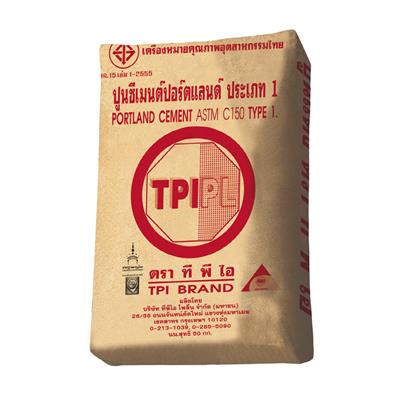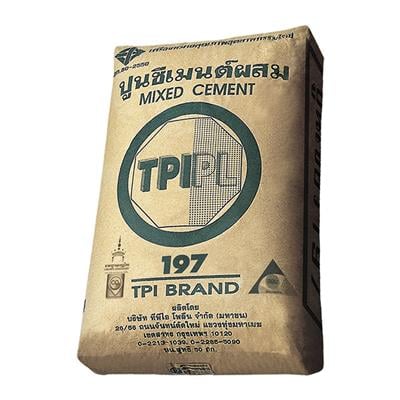Choosing the Right Cement for Your Project

As we look around our house or dwelling, we often notice the various components that surround it. These include walls, ceilings, columns, beams, roofs, etc. All of these elements require cement as a component. No matter where you look, you can't escape cement. Cement is a crucial intermediary that acts like glue, binding different materials together and adding strength to all types of construction.

Just as there are many types of glue, there are also many types of cement. Each type has its own specific uses and applications. Since cement is a critical material that affects the strength and safety of a structure, it is important to choose the right type for the job. In this article, we will share some knowledge about the different types of smartboard and cement board so that you can make an informed decision. There are three main types of cement:
1. Structural Cement
This type of cement is commonly known as Portland cement. It is the most familiar type of cement and is primarily used in structural applications such as floors, columns, and beams. This cement is known for its strength, durability, and good load-bearing capacity. However, it is important to note that there are five types of structural cement according to the TIS standard, each with its own specific properties:
• Type 1: Ordinary Portland cement is suitable for general construction applications such as floors, columns, and beams. It is commonly used in conjunction with steel reinforcement to create reinforced concrete, which provides increased strength and durability to structures.

Portland Cement TPI TPI Size 50 kg. Red
• Type 2: Modified Portland cement is suitable for large-scale structural applications that require exceptionally high load-bearing capacity, such as piers and foundations. Its key property is its moderate resistance to sulfate salts, which is important for large structures that may meet alkali in water, soil, or the sea.

• Type 3: High-early-strength Portland cement is suitable for precast concrete, pile driving, and electric pole casting. This type of cement dries quickly and allows for fast completion of work. However, it is not suitable for large concrete structures as it may develop cracks over time.

• Type 4: Low-heat Portland cement is suitable for dam construction. This type of cement can control the heat generated during the setting process, preventing excessive heat from the reaction between cement and water, and thus preventing cracking.

• Type 5: Sulfate-resistant Portland cement is suitable for applications in highly saline environments, such as the construction of houses or structures near the sea.

2. Mortar and Masonry Cement
Mortar and Masonry Cement has a lower compressive strength than structural cement, making it unsuitable for structural applications that need to bear the weight of a building. However, it is ideal for applications that require adhesion and is a key component in bricklaying and creating smooth, beautiful wall finishes. It is divided into 3 types:
• Ready-mixed cement is suitable for small concrete works, bricklaying, and plastering. This type of cement is composed of ordinary Portland cement, sand, and limestone, which makes it more cohesive. When used, it provides good bonding and has a drying time that is neither too fast nor too slow. This prevents rapid shrinkage and subsequent cracking.

Cement TPI No.197 Size 50 KG. Green
• Ready-mix mortar is suitable for small concrete works, block laying, and brick wall construction. It is similar to ready-mixed cement but does not contain aggregates. It is composed only of cement, sand, and concrete admixtures, making it easy to use. Simply mix water with the ready-mix mortar and it is ready to use.

• Masonry cement is suitable for plastering walls only. It is a cement with added chemicals that give it the ability to absorb water exceptionally well. This prevents cracking or peeling after the cement dries. Importantly, when applying masonry cement, you don't need to use a lot of force. With just a light application, the wall will be exceptionally smooth.

3. Special Cement
Special cement is developed from ordinary cement to have special properties, high strength, and high bonding strength. This makes it suitable for different types of applications and specialized tasks. It is divided into 2 types:
• Oil well cement is specifically designed for oil drilling operations. Its production quality is controlled to meet the standards set by the American Petroleum Institute. This is because oil well cement must have significantly higher sulfate resistance compared to sulfate-resistant Portland cement. It is used in deep seawater, in areas where there is a potential for high pressure or temperature due to the depth of the water level. It also has the property of rapid hardening.

• White cement is suitable for structural, masonry, and plastering applications, just like the gray cement we commonly see. However, white cement contains certain compounds that help control the color stability of the cement to the greatest extent possible. This results in the aesthetically pleasing white color of white cement.

As you can see, there are many types of cement. Each type is further divided into sub-types based on its intended use. Ultimately, if you are still unsure about which type of cement is right for your project, it is recommended that you consult with a qualified professional.
Credit for images: popularmechanics.com, boom-pics.click, checkatrade.com, nrv-norvia.com, bruker.com, sakrete.com, buildinganddecor.co.za, theadvocate.com, structuralguide.com
• You can buy Cement at our stores or online shopping. Click
Other interesting Articles:
Recommended products













